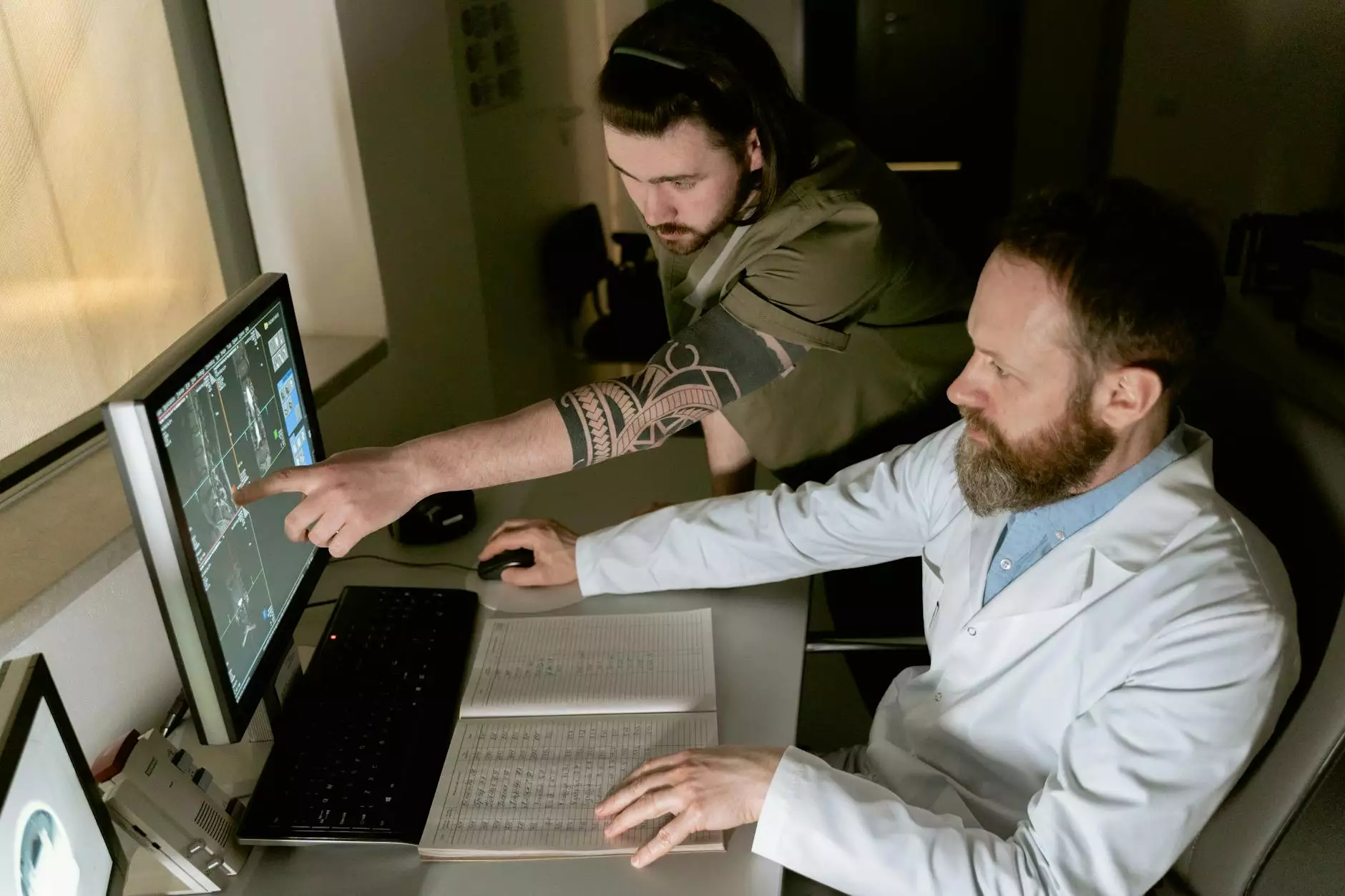Vulvodynia, Vulvar Vestibulist and Rectal Prolapse - Gentle Rolfing

Vulvodynia
Vulvodynia is a chronic pain condition that affects women, specifically in the vulvar area. It is characterized by burning, stinging, or rawness, often accompanied by increased sensitivity to touch. This condition can have a significant impact on a woman's quality of life, causing discomfort during sexual intercourse and daily activities.
At Gentle Rolfing, our team understands the challenges faced by individuals with vulvodynia and offers specialized treatments to help alleviate symptoms. Our holistic approach focuses on addressing the underlying causes of vulvodynia, which can vary from person to person.
Causes of Vulvodynia
The exact causes of vulvodynia are still not fully understood. However, several factors have been associated with the development of this condition. These may include:
- Hormonal imbalances
- Nerve damage or irritation
- Muscle spasms or tension
- Pelvic floor dysfunction
- Genetic predisposition
- Chronic inflammation
- Past sexual trauma
It's important to note that vulvodynia is not caused by poor hygiene or any contagious disease. It is a complex disorder influenced by various factors.
Symptoms of Vulvodynia
Vulvodynia can present with a range of symptoms, and these may vary from person to person. Common symptoms associated with vulvodynia include:
- Burning or stinging sensations
- Rawness or soreness
- Itching or irritation
- Painful sexual intercourse (dyspareunia)
- Pain during activities such as sitting or exercising
- Inflammation or redness in the vulvar area
If you experience any of these symptoms, it is crucial to consult with a healthcare professional for an accurate diagnosis and personalized treatment plan.
Treatments for Vulvodynia
At Gentle Rolfing, our skilled practitioners work closely with individuals with vulvodynia to develop tailored treatment strategies. Some common approaches that may help manage vulvodynia symptoms include:
- Manual therapy techniques to address muscular imbalances and reduce tension in the pelvic region
- Dietary modifications to reduce inflammation and improve overall pelvic health
- Stress reduction techniques, such as meditation or yoga, to minimize pain triggers
- Topical medications or numbing creams to provide temporary relief
- Referral to other healthcare professionals, such as pelvic floor physical therapists or gynecologists, for additional support
It's important to remember that every individual is unique, and treatment plans may differ based on specific needs. Our goal at Gentle Rolfing is to provide comprehensive care and support throughout your healing journey.
Vulvar Vestibulist
Vulvar vestibulist is a condition characterized by pain and tenderness in the vestibule, which is the entrance to the vagina. This condition can cause discomfort during sexual intercourse, inserting tampons, or even during physical activities that put pressure on the affected area.
At Gentle Rolfing, we understand the impact vulvar vestibulist can have on a woman's intimate life and overall well-being. Our experienced practitioners offer personalized treatments to address the root causes of this condition and provide symptom relief.
Causes of Vulvar Vestibulist
The exact causes of vulvar vestibulist can vary from person to person. Some potential factors that may contribute to its development include:
- Chronic inflammation
- Birth control methods
- Recurrent vaginal infections
- Allergies or sensitivities to certain substances
- Physical trauma, such as childbirth or pelvic surgeries
- Hormonal imbalances
- Psychological factors, including stress or anxiety
It's important to seek professional advice if you experience symptoms associated with vulvar vestibulist, as proper diagnosis is crucial for effective treatment.
Symptoms of Vulvar Vestibulist
Vulvar vestibulist can manifest through various symptoms, which may include:
- Pain or discomfort in the vestibular area
- Burning or stinging sensations
- Tenderness to touch
- Pain during sexual intercourse (dyspareunia)
- Difficulty inserting tampons or undergoing gynecological exams
If you experience any of these symptoms, it's vital to consult with a healthcare professional who specializes in women's health to receive appropriate care.
Treatments for Vulvar Vestibulist
Treatment options for vulvar vestibulist vary depending on the underlying causes and individual needs. Our skilled practitioners at Gentle Rolfing offer a range of therapeutic techniques to help manage symptoms and promote healing. These may include:
- Manual therapy techniques to alleviate muscle tension and improve pelvic floor function
- Dietary adjustments to reduce inflammation and support overall vaginal health
- Topical medications, creams, or ointments for pain relief
- Stress management techniques to minimize pain triggers
- Collaboration with other healthcare professionals, such as gynecologists or pelvic floor physical therapists, for comprehensive care
Our team is committed to providing individualized care and support to help you regain comfort and enhance your overall well-being.
Rectal Prolapse
Rectal prolapse occurs when the rectum protrudes through the anus, leading to discomfort and potential complications. It is commonly associated with weakened pelvic floor muscles and can affect both men and women, although it is more prevalent in older individuals.
Gentle Rolfing is dedicated to providing effective treatments for rectal prolapse, addressing the root causes of the condition and improving pelvic floor function to enhance your quality of life.
Causes of Rectal Prolapse
Rectal prolapse can be caused by a combination of factors, including:
- Weakened pelvic floor muscles
- Chronic constipation or straining during bowel movements
- A history of rectal surgery or trauma
- Pregnancy and childbirth
- Age-related weakening of the pelvic muscles and tissues
- Genetic predisposition
- Long-term conditions that increase abdominal pressure, such as chronic cough or obesity
If you suspect rectal prolapse, it is essential to consult with a healthcare professional who specializes in gastrointestinal conditions for accurate diagnosis and tailored treatment options.
Symptoms of Rectal Prolapse
The symptoms of rectal prolapse may include:
- A visible protrusion or bulge from the anus
- A feeling of fullness or the urge to have a bowel movement
- Rectal bleeding or mucus discharge
- Pain or discomfort in the anal area
- Dysfunction in bowel movements, such as difficulty defecating or incomplete evacuation
If you experience these symptoms, it is important to seek medical attention to determine the appropriate treatment plan.
Treatments for Rectal Prolapse
Treatment options for rectal prolapse depend on the severity of the condition and individual factors. At Gentle Rolfing, our dedicated practitioners offer comprehensive treatment approaches, which may include:
- Non-surgical interventions, such as pelvic floor rehabilitation exercises to strengthen the muscles
- Dietary recommendations to improve bowel function and prevent constipation
- Manual therapy techniques to enhance pelvic floor tone and function
- Surgical procedures, if necessary, to repair or support the rectal tissues
- Collaboration with other healthcare professionals, such as gastroenterologists or colorectal surgeons, for a multidisciplinary approach
We prioritize your well-being and are dedicated to providing personalized care to help you overcome the challenges associated with rectal prolapse.










